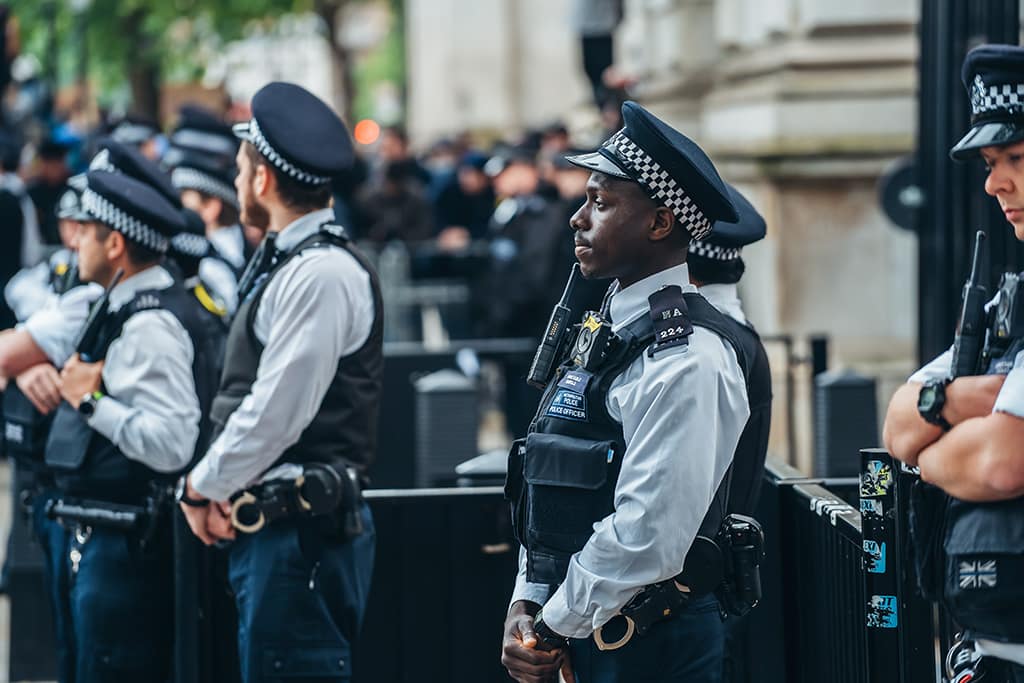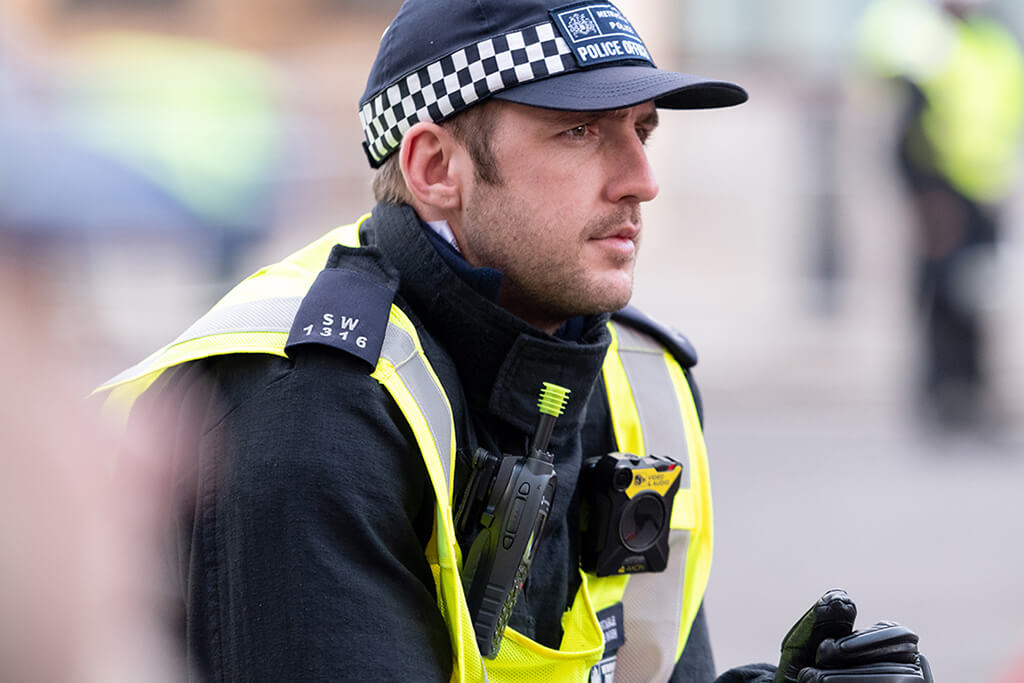Insights
How emerging technology will transform tomorrow’s police force
Author
Charlotte Hails
Justice and Policing Lead
Virgin Media O2 Business
3 minutes
28th February 2023
Share this article:
From drones and body-worn video to artificial intelligence for enhancing decision-making, the range of technologies being developed to keep the public, police officers and frontline police staff safer is vast.
Police forces have more technology than ever, increasing their ability to do their jobs more effectively and efficiently.
We recently hosted a round table with our partner, Policing Insight, discussing how emerging technologies are shaping UK policing, and where the challenges, gaps and opportunities lie.
Here are some of the most interesting points from the discussion.
Overcoming the digital transformation challenges
It’s common to have barriers to innovation.
How do you invest in effective exploration of new technologies with limited budgets? How do you safely migrate legacy systems to the cloud in the face of cost and security considerations? Or stop siloed data restricting the opportunities to share?
What’s clear, however, is that large-scale digital ecosystems must meet the police’s needs on a realistic, practical level so they can simply do their job.
To achieve this we need to start with all UK forces having the same technology foundations. This will enable efficiencies and the ability to share data with ease, while allowing officers and staff to use emerging technologies effectively and consistently.
We need intelligent innovation
It’s important for digital suppliers and police professionals to talk the same language in order to solve policing challenges together. Understanding what’s integrable, usable and possible in the future requires a shared approach to innovation.
It’s also worth remembering that innovation that isn’t useful and practical is merely a gadget.
Development is always constrained by budget. Building fail-fast testing that thoroughly assesses a technology’s potential and pitfalls into the innovation process is necessary. But financially hard to do.
At the moment, each police force has its own processes, demographics and types of crime to deal with. So coordinating all UK police forces – getting them to integrate and share the same technological systems – requires careful management and a collaborative approach.
Integration is key to working together effectively
The last 15 years have seen rapid technological change. And while the pandemic accelerated digital adoption, it’s clear that the police forces with a connectivity infrastructure in place are better prepared for transformation.
Surrey & Sussex Police showed how improving connectivity enabled these two forces to handle data and utilise their body-worn video, resulting in reduced operational costs and increased efficiencies.
This demonstrates that having the right network connectivity and advanced digital ecosystems is the foundation for positive digital transformation change. Adapting to change is crucial to the integration of those ecosystems, however.
The good news is that by ensuring digital, data and technology capability is built across police forces, adoption can accelerate and policing organisations get what they truly need. This is especially true if it involves representatives from all stakeholder groups in business change.
Making emerging technology work for everyone
Constant advances in technology bring exciting possibilities within policing. What’s vital is that police forces adopt the right type of tech (or continue to optimise the tech already available to them) to get the maximum benefits.
Having the right digital partners will prove essential in enabling police officers and staff to work anywhere securely.
Read more about what new technology is bringing to the justice sector.
Want to speak to one of the team?
call 0800 064 3790


